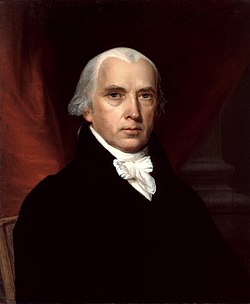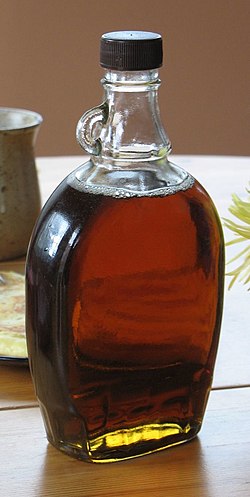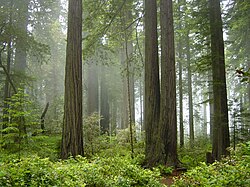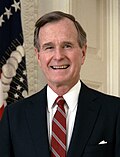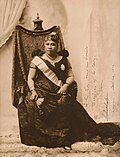Portal:United States
Introduction

| |

| |
Did you know (auto-generated) -

- ... that the prop currency produced by the Earl Hays Press for the 1965 film The Cincinnati Kid was so realistic that it entered circulation and the plates had to be destroyed by the United States Secret Service?
- ... that The Source was the highest-selling music magazine on the newsstands in the United States?
- ... that Jason Moore and other Wikipedia editors curated the entry about the January 6 United States Capitol attack in real time?
- ... that a future World War II aircraft carrier was used as a hotel during the 7th National Eucharistic Congress in 1935?
- ... that when the sale of its San Diego TV station failed, United States International University asked some of its employees to wait to pick up their paychecks?
- ... that censorship in communist Poland delayed the publication of the novel Zaziemskie światy for nearly a decade due to its "inappropriate ideological basis" and positive portrayal of the United States?
- ... that a portrait engraver made the controversial decision to change a Sioux chief's war bonnet so that it would fit on the 1899 United States five-dollar silver certificate?
- ... that Massachusetts gave the United States its first openly LGBT state legislator to be elected, as well as the first out congressperson and state attorney general?
Selected society biography -
Born into a wealthy, established family in Milton, Massachusetts, Bush was raised in Greenwich, Connecticut. He attended Phillips Academy and served as a pilot in the United States Navy Reserve during World War II before graduating from Yale and moving to West Texas, where he established oil company Zapata Corporation. Following an unsuccessful run for the United States Senate in 1964, he was elected to represent Texas's 7th congressional district in 1966. President Richard Nixon appointed Bush as the ambassador to the United Nations in 1971 and as chairman of the Republican National Committee in 1973. President Gerald Ford appointed him as the chief of the Liaison Office to the People's Republic of China in 1974 and as the director of Central Intelligence in 1976. Bush ran for president in 1980 but was defeated in the Republican presidential primaries by Reagan, who then selected Bush as his vice presidential running mate. In the 1988 presidential election, Bush defeated Democrat Michael Dukakis.
Foreign policy drove Bush's presidency as he navigated the final years of the Cold War and played a key role in the reunification of Germany. He presided over the invasion of Panama and the Gulf War, ending the Iraqi occupation of Kuwait in the latter conflict. Though the agreement was not ratified until after he left office, Bush negotiated and signed the North American Free Trade Agreement, which created a trade bloc consisting of the United States, Canada and Mexico. Domestically, Bush reneged on a 1988 campaign promise by enacting legislation to raise taxes to justify reducing the budget deficit. He championed and signed three pieces of bipartisan legislation in 1990, the Americans with Disabilities Act, the Immigration Act and the Clean Air Act Amendments. He also appointed David Souter and Clarence Thomas to the Supreme Court. Bush lost the 1992 presidential election to Democrat Bill Clinton following an economic recession, his turnaround on his tax promise, and the decreased emphasis of foreign policy in a post–Cold War political climate. (Full article...)
Selected image -
Selected culture biography -
Selected location -
The city was incorporated on June 5, 1837 and named after then-President of the Republic of Texas—former General Sam Houston. The burgeoning port and railroad industry, combined with oil discovery in 1901, has induced continual surges in the city's population. In the mid-twentieth century, Houston became the home of the Texas Medical Center and NASA's Johnson Space Center, where Mission Control Center is located.
Houston's economy has a broad industrial base in the energy, manufacturing, aeronautics, and technology; only New York City is home to more Fortune 500 headquarters. The Port of Houston ranks first in the United States in international waterborne tonnage handled. It is home to many cultural institutions and exhibits—attracting more than 7 million visitors a year to the Houston Museum District. Houston has an active visual and performing arts scene in the Theater District and is one of five U.S. cities that offer year-round resident companies in all major performing arts.
Selected quote -
Anniversaries for April 18
- 1906 – An earthquake with an estimated magnitude of 7.9 destroys much of San Francisco, California.
- 1906 – A Los Angeles Times story on the Azusa Street Revival launches Pentecostalism as a worldwide movement.
- 1923 – The original Yankee Stadium (pictured), which served as the home of the New York Yankees until 2008, opens.
- 1983 – A suicide bomber destroys the United States embassy in Beirut, Lebanon, killing 63 people.
- 1988 – The United States launches Operation Praying Mantis against Iranian naval forces in the largest naval battle since World War II.
- 1949 – The aircraft carrier USS United States (CVA-58) is laid down at Newport News Drydock and Shipbuilding. However, the United States is canceled five days later, resulting in the Revolt of the Admirals.
Selected cuisines, dishes and foods -

Barbecue is a tradition often considered a quintessential part of American culture, especially the Southern United States. (Full article...)
Selected panorama -
View from near the summit of Mount Ellinor in the Olympic National Forest of Washington, showing Mount Washington on the right, Puget Sound on the left, and various other landmarks.
More did you know? -
- ... that the Red Tail Project evolved after a United States Air Force P-51 Mustang (pictured) flown by the Tuskegee Airmen was passed through several owners for over 40 years?
- ... that while other nations have marine aviators, only the United States Marine Corps has their own dedicated aviation arm?
- ... that Andrew Saul heads the Federal Retirement Thrift Investment Board, which manages the $158 billion Thrift Savings Plan for 3.7 million soldiers and Federal employees?
Topics
Categories
Featured content
List articles
|
Culture Education Economy |
Geography Government
History |
Law Media Natural history |
People Protected areas Religion Transportation |
Tasks
Featured article candidatesTotal pages in content type is 3 Featured list candidatesTotal pages in content type is 7 Good article nominees
Total pages in content type is 109 | ||||
|
To create
To discuss on Articles for deletion
To expand To destub |
Assessment requests New articles Most Popular pages To find images |
Maintenance and cleanup
Other issues
| ||
Related portals
State-related
Region or city-related
Sports-related
Transportation-related
Other US-related
Nearby areas
WikiProjects
Associated Wikimedia
The following Wikimedia Foundation sister projects provide more on this subject:
-
Commons
Free media repository -
Wikibooks
Free textbooks and manuals -
Wikidata
Free knowledge base -
Wikinews
Free-content news -
Wikiquote
Collection of quotations -
Wikisource
Free-content library -
Wikiversity
Free learning tools -
Wikivoyage
Free travel guide -
Wiktionary
Dictionary and thesaurus
More portals




